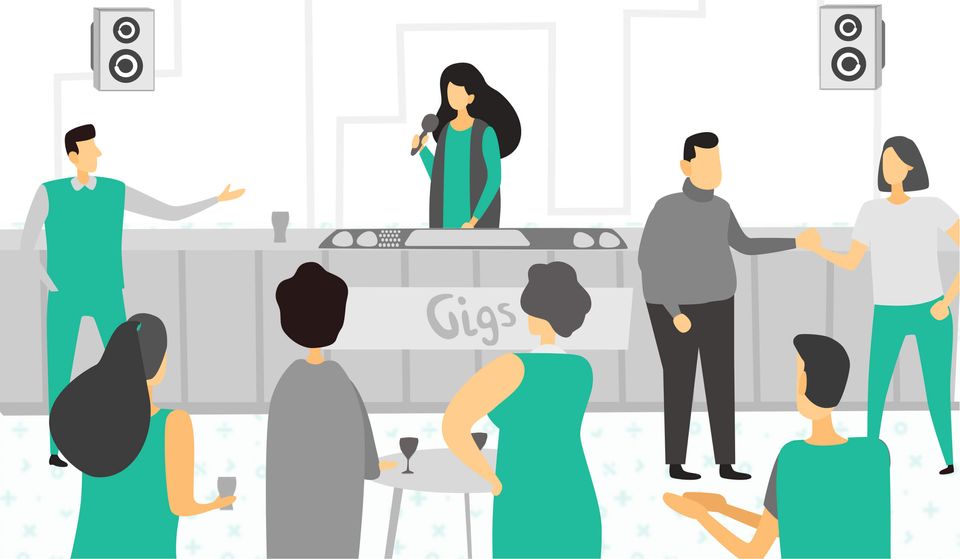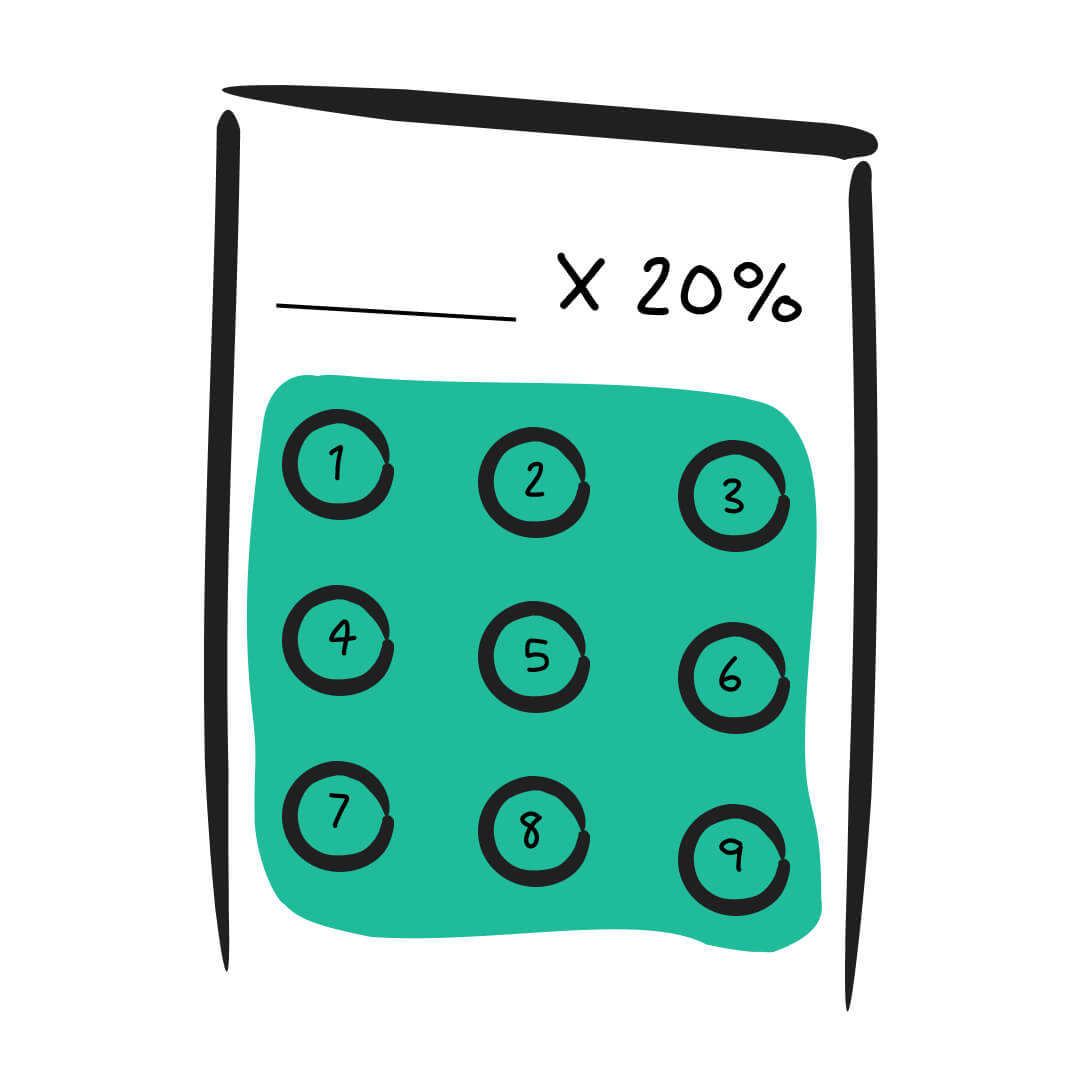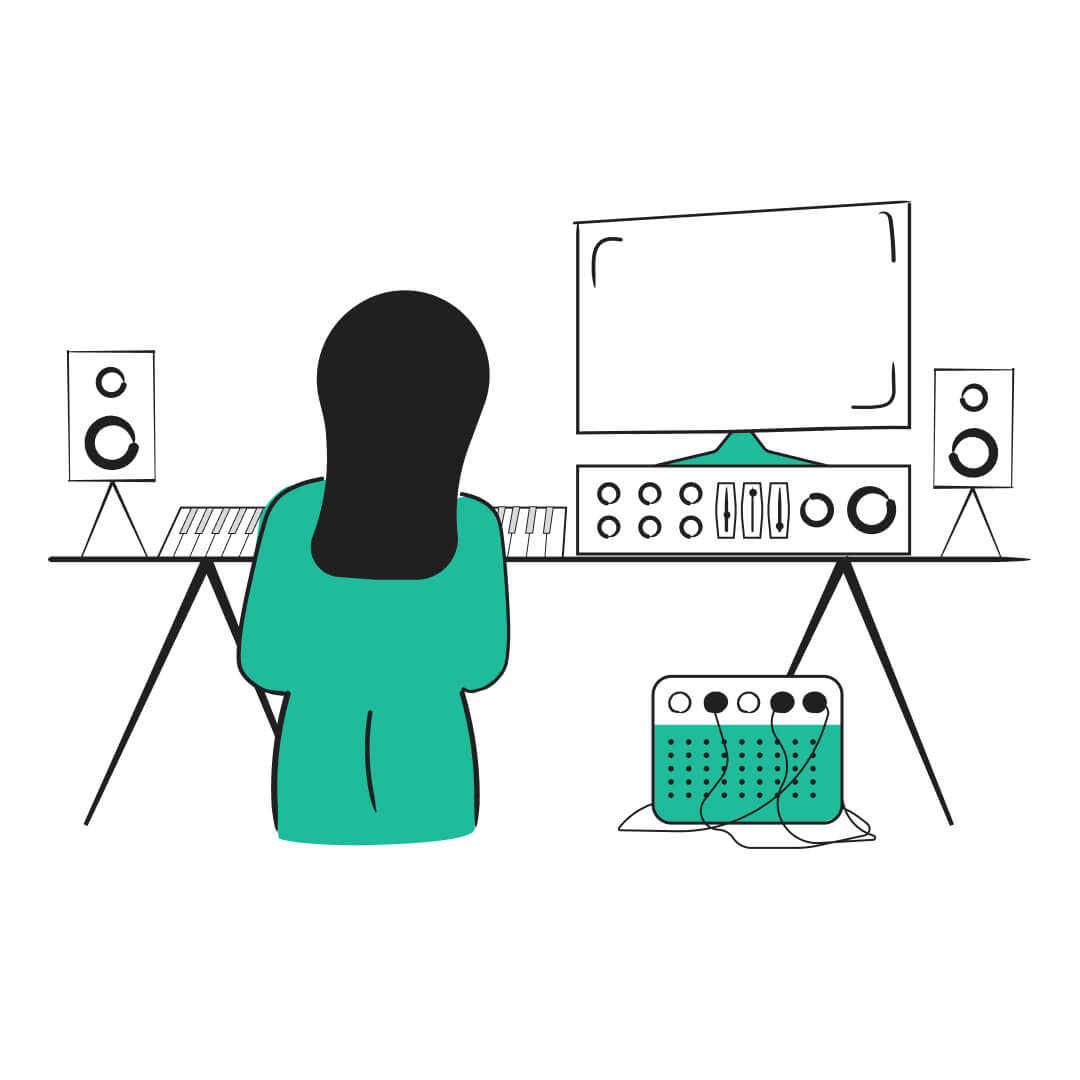UK VAT for Musicians and Small Music Businesses

Introduction to UK VAT for musicians
How does VAT work in the music industry?
In the music industry, different activities have different VAT rates.
Here's a sample of the VAT treatment of some services when supplied to businesses or consumers within the UK.
VAT on Singing or Playing Music at Events (Performances)
UK performances are subject to VAT at 20%. Performances outside of the UK are outside the scope of VAT.
VAT on Working as a Session Musician (Sessions)
You'll need to add 20% VAT when charging UK businesses or individuals. If you're providing session musician services to a business customer based outside the UK, the reverse charge mechanism applies, and the customer accounts for VAT in their own country. You do not charge UK VAT.
VAT on Selling Songs or Music to Others (Royalties)
Charge VAT at 20% on royalties when your music is sold to a UK licensee. Royalties that originate from outside the UK are outside the scope of VAT.
VAT on Letting Others Use Your Music For a Fee (Licensing)
Add 20% VAT when licensing music to UK businesses or individuals. However, when licensing music to a business customer based outside the UK, the customer accounts for VAT in their own country (reverse charge). There is no need to charge UK VAT.
VAT on Music Services, Teaching, Consulting (Other Services)
Most services follow the general UK rules for VAT. If you're in the UK and you provide the service to a UK business or individual, then you'll need to charge VAT at 20%. If you're providing the service outside the UK, or selling to an overseas business, then you do not charge VAT.
VAT on Selling Physical Products (Goods)
Add 20% VAT on physical goods sold within the UK, like T-shirts, CDs, or other merchandise. UK businesses (excluding Northern Ireland) sending goods by post outside of the UK do not need to charge VAT. You just need to keep evidence that you have exported the goods.
Now, let's explain VAT from the ground up.

What is VAT?
VAT is a tax added to the price of most things we buy, like clothes, food, and even music services. When you pay for something, part of the money goes to the government as VAT.
Do I need to register for VAT?
You are required to register for VAT if your music business makes more than £85,000 a year. You can also choose to register if you are below the threshold.
When you register for VAT you’ll need to prepare quarterly VAT returns.
You can register for VAT online at GOV.UK.
What is the VAT threshold for music businesses?
Like any business, you’ll need to register for VAT if you sell VAT-taxable goods or services for more than £85,000 in any 12 month period. You will have a short grace-period before you need to start charging VAT.
Can I claim VAT on expenses before I register for VAT?
You can usually claim VAT on some pre-registration expenses in your first VAT return. The rules are complex, but in summary you can claim:
- VAT on services up to six months prior to your effective date of registration (EDR). Examples of services include rent, accounting and legal fees.
- VAT on goods up to four years before your EDR, but only where the goods are still in-use on the EDR. High-value equipment is a good example. Short-lived goods like food and petrol are unlikely to meet the conditions.
What are the UK VAT rates?
There are three main VAT rates in the UK:
- Standard rate (20%): This is the most common rate for many things, like music services.
- Reduced rate (5%): This rate applies to some things, like energy-saving materials.
- Zero rate (0%): Some things have no VAT, like children's clothes and books.
In addition, your sales may also be:
- Exempt from VAT: Exempt sales are for goods or services that don't require you to charge VAT. However, you also cannot reclaim any VAT on related expenses. Examples include certain financial services, education, and healthcare services.
- Outside the scope of VAT: Sales that are outside the scope of VAT are those that don't involve the supply of goods or services, or don't involve a business transaction. Examples include the money you invest in your own business, donations, gifts, and income from investments. Foreign sales may also be outside the scope of VAT. You don't need to charge VAT on these transactions, and they don't count toward your VAT taxable turnover.

How do I charge VAT on my invoices?
When you send an invoice to your clients or customers, you need to add the right amount of VAT. For example, if you're charging £100 for a service, and the VAT rate is 20%, you need to add £20 for VAT. So, the total amount your customer needs to pay is £120. VAT registered customers may be able to claim £20 back on their next VAT return, but ordinary consumers cannot.
Can I reclaim VAT on music expenses?
When you buy things for your business, you can usually get some VAT money back. Just remember to keep all your receipts and invoices, and report these purchases on your VAT return.
Do I need to charge VAT if my customers are in other countries?
Most of the time, you will not need to charge VAT when you sell things in other countries. The rules can be different, so it's best to ask an accountant for help.
Let’s walk through how it works with a few definitions.
Business-to-Business (B2B)
This is when a business sells something to another business. You’ll need to obtain proof that the other party is a business. The best form of proof is a local VAT registration number or other company number. Another example (in the US) is the Employer Identification Number (EIN).
The general rule for supplies of B2B services is that the supply is made where the customer belongs. If the customer is outside the UK, then you do not need to charge UK VAT. Your customer will need to apply the reverse charge and account for the VAT on their own VAT return, which is pretty complex and something we’ll tackle another day.
Business-to-Consumer (B2C)
When a business sells something to an individual or consumer. You do not need to obtain proof of this and the rules are usually more stringent for the supplier.
The general rule for supplies of B2C services is that the place of supply is where the supplier belongs, irrespective of the location of their customer.
In contrast to the general rule, artistic services are taxed where they are performed. This means that performances outside of the UK are not subject to VAT.
As you can see, the rules are complex. Consult an accountant and don’t be afraid to get a second opinion. Accountants make mistakes too.

How can Numble help me with VAT?
VAT might sound tricky, but it's essential for small, growing music businesses in the UK. By understanding the basics of VAT, you can make better decisions and avoid problems.
A good small business music accountant can help you to understand VAT. If you decide to work with Numble, we’ll teach you as much as you’d like to know. And of course, we’ll also register and submit VAT returns for you.
Feel free to book a call with me or get an online quote.
Useful Resources
We created this guide using our experience and additional resources:
GOV.UK: How to work out your place of supply for services

